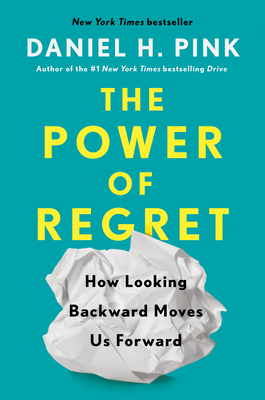The Power of Regret by Daniel H. Pink

Regret is a poorly-understood and often-villainized emotion. Lots of people claim to have no regrets and our culture idealizes such a state, but this is almost never true and almost never a good thing anyway.
Anyone with the ability to picture alternate “what if” and “if only” timelines with better outcomes has the ability to feel regret. Children gain this ability around age six.
Regret does not feel good, but it serves an important practical function. Regret is how people recognize that they had made a mistake. Regrets lead to learning and to adjustments of priorities so that similar decisions can be done better in the future. Regrets temporarily increase willpower and performance on followup tasks. Regrets help people attach meaning and messages to their life stories. Like all emotions, the purpose of regret is to help drive and inform future thinking.
When people are asked to state their biggest life regrets, the responses are extremely diverse. People’s biggest regrets span a variety of life domains (education, career, romantic relationships, friendships, health, parenting, money etc) and no domain of life dominates the list. However, when broken down thematically, there seem to be four main groups of major life regrets.
Foundation regrets (“if only I’d done the work”): regrets about mistakes (usually neglect-related) made in foundational parts of life. A dysfunctional foundation later makes it more difficult to live life to the fullest. Common examples: slacking off at school or work, picking a disliked career, marrying the wrong person, neglecting health, being irresponsible with money
Boldness regrets (“if only I’d taken that risk”): regrets about opportunities that got missed because of inaction, timidity, or risk aversion. Regrets about inaction tend to be stronger than regrets about action since the what-if scenarios are vague and unbounded in scope. Common examples: settling down too quickly, making safe career choices instead of interesting or ambitious ones, shying away from pursuing romantic interests, not traveling more
Moral regrets (“if only I’d done the right thing”): regrets about unethical behavior. This is the smallest of the four groups by frequency, but it tends to have the highest intensity. Common examples: romantic infidelity, bullying, breaking promises, dereliction of duty
Connection regrets (“if only I’d reached out”): regrets about failed interpersonal relationships that maybe could have been saved but weren’t. Common examples: not trying to fix relationships that had suffered a rift, allowing relationships to quietly die from neglect
Regrets offer a view into what people value the most when given the benefit of hindsight. Foundation regrets show us that people have a desire for stability. Boldness regrets show us that people want opportunities to grow and develop. Moral regrets show us that people want to be principled and to live with integrity. Connection regrets show us that people value love and belonging.
When regrets happen, it’s easy but counterproductive to endlessly brood on them. Internalizing the lesson, trying to amend the damage caused, and putting a positive spin on events is usually the best way to get closure. It’s important to be compassionate to yourself and to remember that people tend to judge themselves more harshly than they judge other people.
Some people try to get ahead of regrets by anticipating future regrets and picking choices that seem likely to minimize it. Such a strategy is sometimes useful, but it is mentally costly and can lead to biases towards inaction and risk aversion. Everything is made more complicated by the well-studied fact that people are bad at predicting how intensely they will feel future regrets. Most of life’s minor decisions end up causing less regret than predicted, but decisions that fall into one of the four major categories tend to cause more. This suggests that the best regret reduction strategy is to be a diligent optimizer when one of the four major categories is potentially at stake, but to loosen up and settle for “good enough” choices in other situations.
